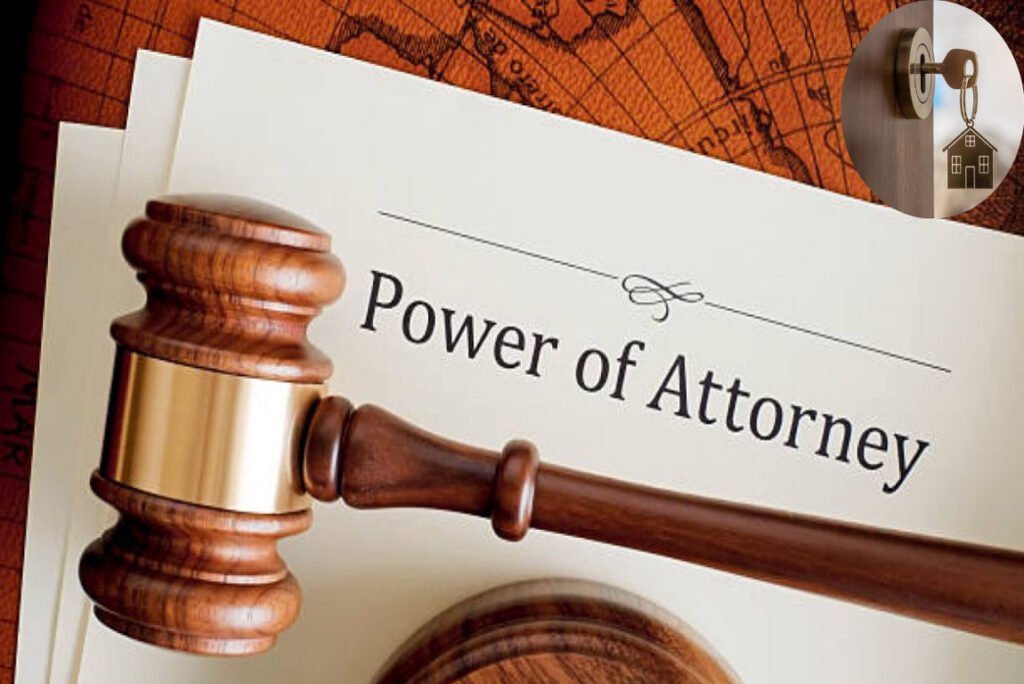When it comes to real estate, legal documents are the backbone of smooth and secure transactions. Whether you’re buying, selling, or managing a property, these documents ensure everything is handled legally and transparently. One such critical document is the Power of Attorney (POA), which plays a pivotal role in certain property-related situations.
But what is a POA in-house real estate, and how does it work? If you’ve ever wondered about this legal mechanism and how it can be used in real estate, you’re in the right place.
What is a POA in House Real Estate?

A Power of Attorney (POA) is a legal document through which one person, known as the principal, grants another person, called the agent or attorney-in-fact, the authority to act on their behalf. In the context of real estate, this means the agent can carry out property-related tasks, such as buying, selling, leasing, or managing properties.
Key Characteristics of a POA in Real Estate
- Authorization: The POA gives the agent the power to make decisions and take actions concerning the principal’s property.
- Legal Binding: A POA is a legally binding document that must meet specific criteria, such as being signed, witnessed, and often notarized.
- Scope of Authority: The authority granted can be broad (covering all property matters) or specific (limited to a single transaction).
General vs. Specific POA
There are two primary types of POAs in real estate:
- General POA: Grants broad authority to the agent to handle all matters related to the property.
- Specific (or Limited) POA: Limits the agent’s authority to particular tasks, such as selling a house or managing a rental property.
To ensure your Power of Attorney (POA) is legally valid, it must include key elements such as the names of the principal and the agent, a clear description of the authority being granted, and proper signatures. Depending on the jurisdiction, you may also need witnesses or notarization.
Types of Power of Attorney Relevant to Home Real Estate

When dealing with real estate, it’s crucial to choose the right type of Power of Attorney (POA) based on your specific needs. Here are the main types of POAs relevant to home real estate:
General Power of Attorney
This type of Power of Attorney (POA) grants the agent broad authority to manage all aspects of the principal’s property. For example, they can buy, sell, lease, or manage multiple properties on behalf of the principal.
You may also read (what are the best work from home).
- When to Use It: Suitable for individuals who need a trusted person to oversee their entire property portfolio.
- Potential Risk: With such vast authority, it’s essential to choose an agent who is both trustworthy and competent.
Special (Limited) Power of Attorney
A limited power of attorney (POA) restricts the agent’s authority to specific tasks or transactions. For instance, you could grant a limited power of attorney (POA) to sell one house or sign a lease agreement on your behalf.
- When to Use It: Ideal for one-time or particular real estate transactions.
- Example: If you’re out of the country but need to complete the sale of your home, a limited POA can empower your agent to finalize the deal.
Durable Power of Attorney
A durable power of attorney (POA) remains valid even if the principal becomes incapacitated. This ensures continuity in property management during unforeseen circumstances.
- When to Use It: Often used for long-term planning, especially by elderly individuals or those with health concerns.
- Key Feature: The durability clause ensures the POA remains effective regardless of the principal’s mental or physical state.
Springing Power of Attorney
A springing POA only becomes effective under certain conditions, such as the incapacity of the principal.
- When to Use It: Suitable for individuals who want to retain complete control until a specific event occurs.
- Example: If you’re healthy and capable now but want a safeguard in case of future incapacity, a springing POA can be a great option.
Choosing the Right POA
Here’s a simple table to help you decide which type of POA suits your needs:
Type of POAScope of AuthorityBest ForKey Consideration
General POA Broad Managing multiple properties Requires high trust in the agent
Limited POA Specific One-time transactions (e.g., selling) Limited in scope but precise
Durable POA Broad or specific Long-term planning, including incapacity, Remains effective if incapacitated
Springing POA Conditional Activation upon specific events Not effective until triggered
How Does a POA Work in Home Real Estate Transactions?

Understanding how a Power of Attorney (POA) operates in real estate transactions helps you use it effectively. Here’s a step-by-step breakdown of the process:
Drafting the POA Document
The principal consults a legal professional to draft the power of attorney (POA). The document must clearly outline:
- The agent’s powers
- The duration of the POA
- Any specific conditions or limitations
Signing and Validating the POA
For the Power of Attorney (POA) to be legally enforceable, it must be signed by the principal in the presence of two witnesses. In many cases, notarization is required for additional legal validity.
Agent’s Role and Responsibilities
Once the POA is active, the agent can act on behalf of the principal within the scope defined in the document. Common real estate-related powers include:
- Signing contracts
- Managing rental properties
- Selling or purchasing property
You may also read (5 key plumbing features that boost home value).
Practical Scenarios
Here are some examples where a POA is commonly used in real estate:
- Owner Living Abroad: A homeowner living overseas grants a POA to a trusted family member to sell their house.
- Incapacitated Owner: A durable POA allows an agent to manage the property while the owner is unable to do so.
Benefits of Using a POA in Home Real Estate

Using a POA in real estate offers numerous advantages:
- Convenience: The principal doesn’t need to be physically present to complete transactions.
- Efficiency: Tasks like signing contracts or managing properties can be delegated to a capable agent.
- Flexibility: The POA can be customized to grant specific or broad authority.
- Continuity: Ensures uninterrupted property management during absences or incapacity.
- Protection: With a trusted agent, the principal’s property interests are safeguarded.
Risks and Limitations of a POA in Real Estate
While a POA is a powerful tool, it comes with risks:
- Misuse of Authority: An agent may abuse their powers for personal gain.
- Loss of Control: The principal may lose direct oversight of property matters.
- Legal Liabilities: The principal may be held accountable for the agent’s actions.
- Revocation Challenges: Revoking a POA can be complex, especially if the agent resists.
To minimize risks, always select a trustworthy agent and consult legal professionals.
How to Create and Execute a POA for Home Real Estate
To create a legally sound POA, follow these steps:
- Consult a Lawyer: Draft a POA tailored to your needs.
- Include Essential Clauses: Specify the scope, duration, and limitations of authority.
- Notarize the Document: Ensure it’s signed, witnessed, and notarized.
- File It Locally: Some jurisdictions require Power of Attorney (POA) documents to be recorded with local offices.
You may also read (how long can you do house real estate with a felony).

